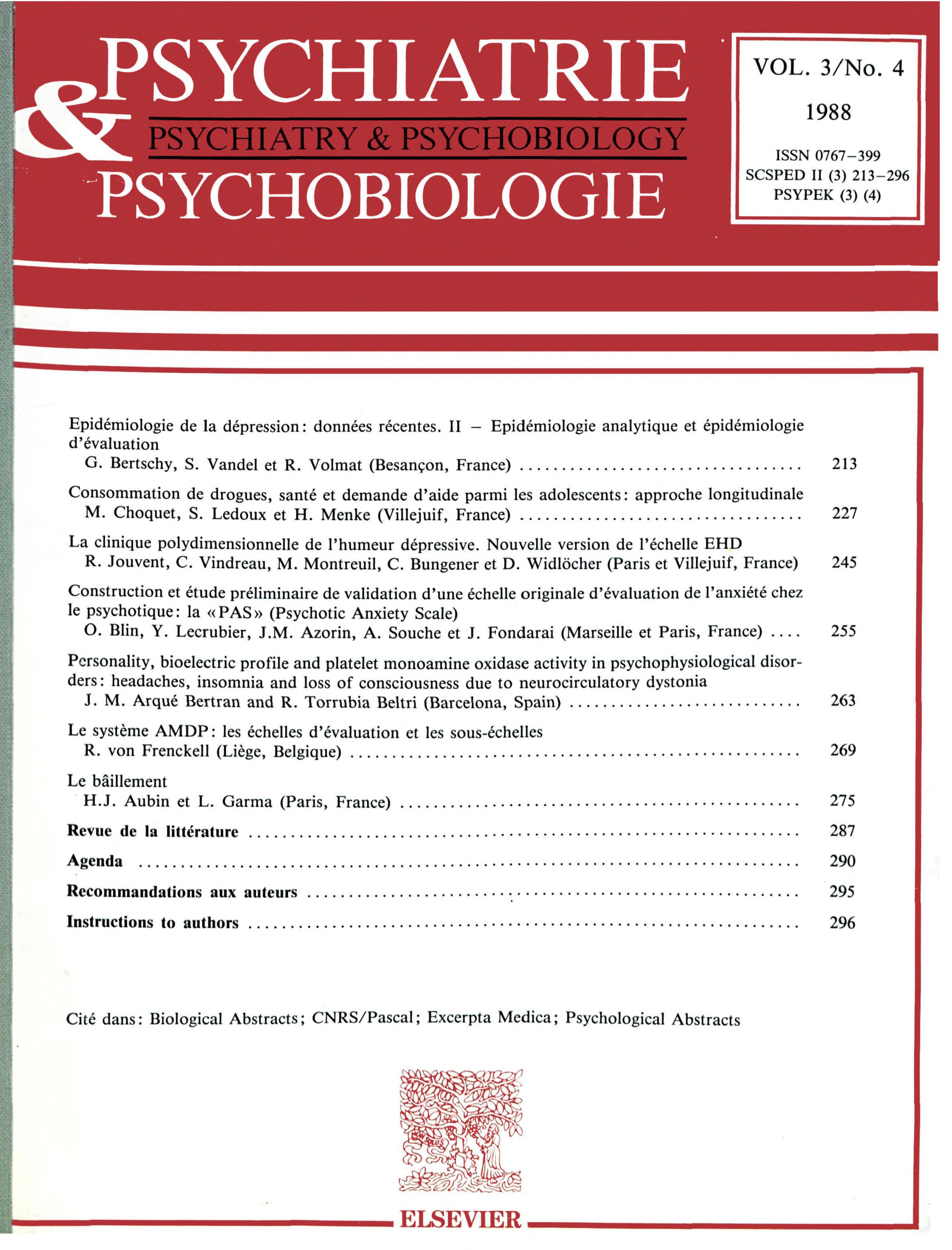No CrossRef data available.
Article contents
Un nuevo cuestionario que evalúa las opiniones de los familiares de los pacientes con esquizofrenia sobre las causas y las consecuencias sociales del trastorno: fiabilidad y validez
Published online by Cambridge University Press: 12 May 2020
Resumen
Este artículo describe el desarrollo y la validación de un cuestionario que evalúa las opiniones de los familiares de los pacientes con esquizofrenia sobre las causas y las consecuencias sociales del trastorno. La versión final del cuestionario incluye 28 elementos, agrupados en cuatro subescalas (restricciones sociales, distancia social, utilidad de los tratamientos, causas biopsicosociales de la esquizofrenia), cuya fiabilidad intra-evaluador va de 0,36 a 0,84. El coeficiente alfa de Cronbach, que examina la validez de contenido de las subescalas, va de 0,56 a 0,66. El análisis factorial identifica dos factores (las opiniones sobre las consecuencias sociales y la utilidad de los tratamientos y las creencias sobre las causas de la esquizofrenia), que explican el 73% de la varianza total. Este cuestionario puede ser particularmente útil para evaluar las creencias de los familiares sobre la esquizofrenia y para llevar a cabo intervenciones psicosociales en las familias de los pacientes con esquizofrenia.
- Type
- Artículo original
- Information
- Copyright
- Copyright © European Psychiatric Association 1999




